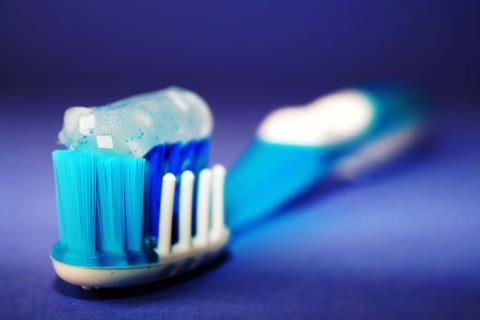Ben-Gurion University of the Negev scientists and their colleagues at Sichuan University and the National University of Singapore have discovered that 3,3′-Diindolylmethane (DIM), a naturally occurring molecule also known as bisindole, reduces the biofilms that produce plaque and cavities by 90%. The molecule is also found to have anti-carcinogenic properties.

Their findings have been published in the journal Antibiotics.
The mouth is a great reservoir for bacteria such as Streptococcus mutans, which is believed to be one of the primary actors in dental cavities. S. mutans grows in the moist and sugary atmosphere of the mouth after food in a biofilm that coats the teeth. Biofilm generates plaque, attacks enamel and causes cavities. The scientists found that the bisindole (DIM) disrupted that biofilm by 90% and therefore the bacterium was not given a chance to grow.
Toothpaste additive
“The molecule, which was found to have low toxicity, could be added to toothpastes and mouthwashes to greatly improve dental hygiene,” says lead author Prof. Ariel Kushmaro of the Avram and Stella Goldstein-Goren Department of Biotechnology Engineering. He is also a member of the Ilse Katz Institute for Nanoscale Science and Technology and the Goldman Sonnenfeldt School of Sustainability and Climate Change.
The study was conducted with his student Yifat Baruch, and Dr. Karina Golberg, as well as Prof. Robert S. Marks of the same department and Qun Sun of Sichuan University, and Karina Yew-Hoong Gin of the National University of Singapore.
The research was supported by the International Research and Development Program of Sichuan (2019YFH0113) and SMART innovation grant ING-000398 (Singapore).
Topics
- 3,3′-Diindolylmethane
- Ariel Kushmaro
- Asia & Oceania
- Bacteria
- Ben-Gurion University of the Negev
- Biofilms
- bisindole
- cavities
- dental health
- Karina Golberg
- Karina Yew-Hoong Gin
- Middle East & Africa
- National University of Singapore
- One Health
- plaque
- Qun Sun
- Research News
- Robert S. Marks
- Sichuan University
- Streptococcus mutans
- Yifat Baruch







No comments yet